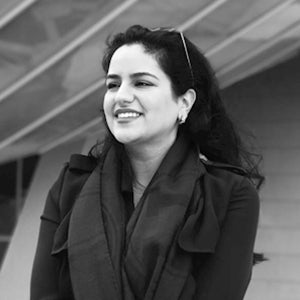We'Aam Al-Abdullah

Al-Shaheed Park as Public Space: An ethnographic exploration of everyday landscapes and politics in Kuwait
Kuwait’s City’s Al-Shaheed Park is an example of public space beyond democracy, which disrupts the public/non-public binary. Scholars widely depict public spaces as directly tied to democracy, and emphasize their active production through protests and informal and insurgent practices. Drawing from thirteen months of ethnographic fieldwork in Al-Shaheed Park, this dissertation investigates publicness through the lens of everyday life. Each chapter identifies a seemingly banal practice that highlights the park’s heterotopic (real and unreal) nature. Through its uncanniness, the park reveals political cues and enables people entry into the public sphere. Practices include cleaning, managing, maintaining, programming, securing, and traveling to and through the park. Through ethnography and theories of everyday life, the chapters investigate how the park and definition of the ‘public’ it serves are reinforced by the actions of multiple actors. These include officials, visitors, cleaners, ecologists and designers, amongst others. Instead of seeing public spaces as lost, this study suggests that publicness exists on a spectrum, showcasing parks in particular as active political sites of reflection and exclusion. Ontologically, multiple definitions of public space exist. By engaging with power in parks, we access and alter the different meanings and understandings of public space and foresee room for change.
COMMITTEE:
Advisor: Dr. Jessica Ellen Sewell
Other committee members: Prof. Elizabeth K. Meyer, Dr. Gareth Doherty
Al-Shaheed Park in Kuwait City, Kuwait (2019); Source: We'Aam Al-Abdullah
